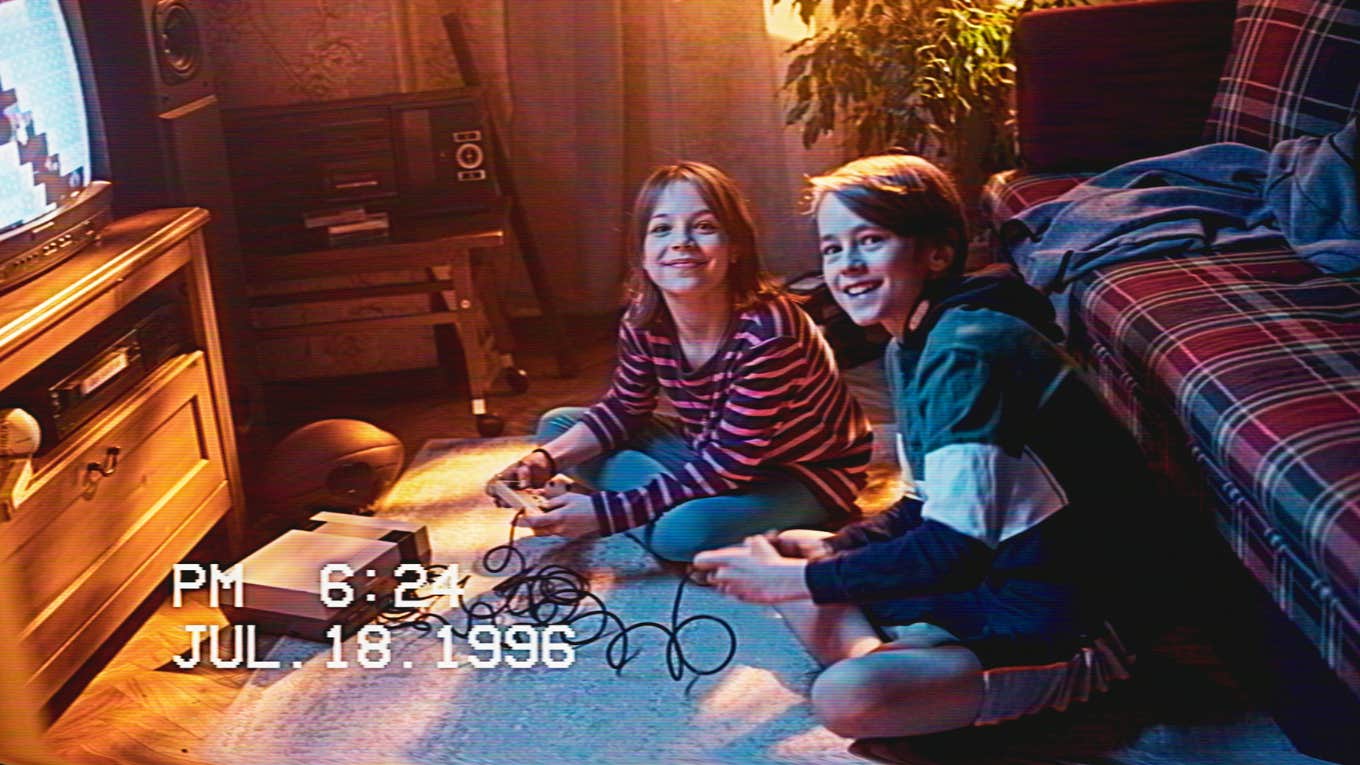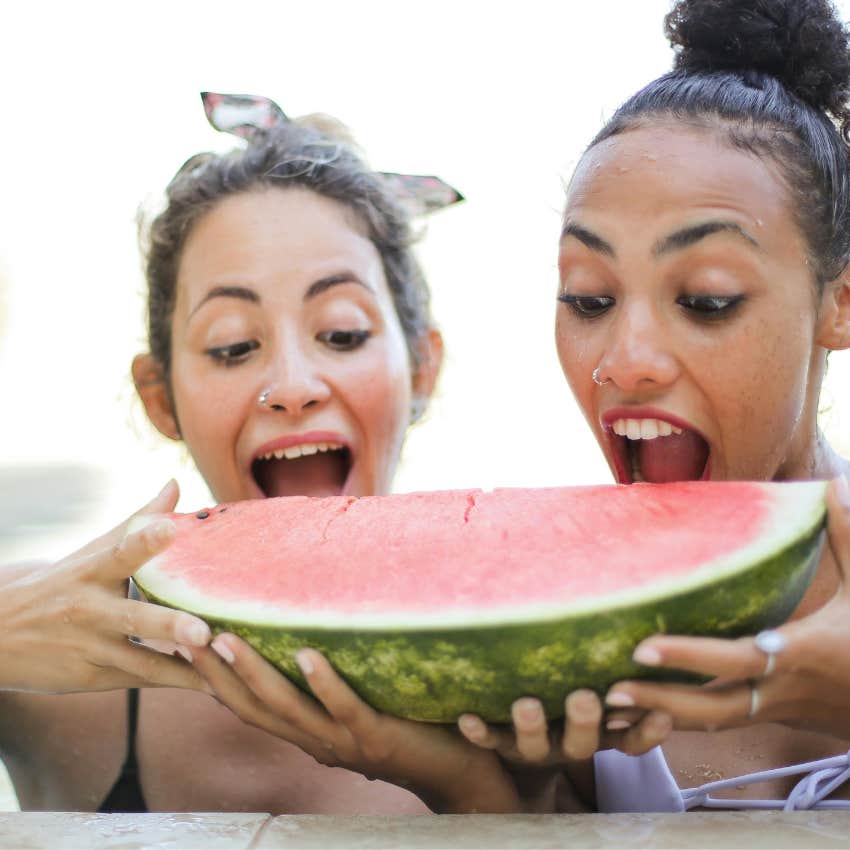10 Blatant Lies Parents In The '90s Told Their Kids — That Most Of Us Believed
The 1990s were a simple time when we believed everything our parents said.
 Gorodenkoff | Shutterstock
Gorodenkoff | Shutterstock The 1990s were a drastically different era. Kids roamed free, and our moms only knew where we were if we called from our bestie’s landline or the payphone on the corner. Growing up in the '90s also meant that we believed whatever our parents told us because we didn’t have the internet to fact-check, and those Encyclopedia Britannica CD-ROMS only went so far.
Now, '90s kids are adults with instant access to all the information in the world, which means we can find out the truth.
Here are 10 blatant lies parents in the '90s told their kids that most of us believed:
1. Drinking coffee stunts your growth
'90s parents told their kids that we couldn’t drink coffee because it would stunt our growth, which turns out to be a medical myth.
 Ground Picture | Shutterstock
Ground Picture | Shutterstock
According to Harvard Medical School, there’s no proven link between coffee consumption and height. How tall we are depends mostly on genetics and our overall health while we’re growing, not whether we enjoy a delicious cup of coffee in the morning. Most people reach their full height by the time they’re teens. For girls, this happens between ages 15 and 17; for boys, it tends to happen a few years later.
Drinking coffee actually has several health benefits, including a lowered risk of stroke and type 2 diabetes. Excessive coffee consumption, defined as drinking 6 or more cups a day, does have negative effects. Drinking too much coffee can cause insomnia and a jittery, anxious feeling. A higher caffeine intake can also trigger migraine headaches.
Despite what our parents told us, drinking coffee didn’t stunt our growth at all, which means that we wasted years of our lives by not sipping that glorious beverage.
2. If you pee in a pool, the water changes colors
Among the lies that '90s parents told their kids, one lie struck fear into our hearts more than any other: If we peed in a pool, the water would change colors, so everyone would know what we did.
As it turns out, a urine dye indicator for chlorine doesn’t exist in 2024, let alone in the '90s. This lie was our parents’ way of making sure we didn’t pee in the pool, and if we’re being honest, we can admit this rule was made to be broken.
 Juan Salamanca / Pexels
Juan Salamanca / Pexels
No kid wants to stop swimming to peel their soaking wet bathing suit off and use the bathroom when they can just pee in the pool. But our parents’ words echoed in our heads, urging us to do the right thing, lest that imaginary dye reveal our truth for all to see.
3. Chocolate milk comes from brown cows
This lie was one of the less harmful lies our parents told us. As we slurped our chocolate milk, they’d insist it came from brown cows. We may not have believed them, but in our pre-internet childhood, we had no way to prove them wrong.
4. A watermelon will grow in your stomach if you swallow the seeds
Yet another lie our parents told us was that swallowing watermelon seeds would make a watermelon grow in our stomachs. This lie led to a generation of kids who truly believed we were harvesting that perfectly pink summer fruit inside our bodies.
We took what our parents said as the undeniable truth because, again, that was the cursed beauty of being raised without the internet.
 Andrea Piacquadio / Pexels
Andrea Piacquadio / Pexels
The myth of the watermelon seed was scribbled onto notes we passed when our teacher’s back was turned. It was whispered from playground to playground; it crossed state lines and circled back. There was always one kid who insisted that their cousin’s camp friend’s boyfriend grew a watermelon in his stomach, seriously, for real.
Now, we know the truth, but we still think about what our parents said whenever we eat watermelon.
5. If you swallow gum, it takes 7 years to digest
Whenever we got our hands on Big League Chew or Hubba Bubba Bubble Tape, we shoved all the gum in our mouths at once, reveling in the pure joy of this childhood ritual, until our parents told us that if we swallowed the gum, it would stay in our stomachs for 7 years.
While this chewing-gum theory isn’t true, it’s not entirely impossible, either. “This isn’t exactly as straightforward as you think,” declared Dr. Mike, a family medicine practitioner. He shared that gum can get stuck in the GI tract, “especially if you swallow a lot of it or you swallow it at the same time with another solid substance, like a penny.”
“Gum is indigestible,” Dr. Mike said, then challenged all '90s parents by asking, “Where does the seven years come from? Who made that up? It makes no sense.”
“Don’t swallow gum regularly, but if you do, no big deal,” he concluded, putting our fears to rest once and for all.
 Lisa Fotios / Pexels
Lisa Fotios / Pexels
6. It’s illegal to drive with lights on inside the car
'90s parents told their kids that driving with the interior car light on was illegal, something this elder millennial absolutely believed was true until today, when she was 39 years old and started writing this article.
While it isn’t illegal to drive with the lights on inside the car, it is a distraction. There’s a chance you could get pulled over, but it’s entirely within the law to keep your lights on while driving.
7. Sitting too close to the TV will ruin your vision.
There was no better way to spend Sunday morning than watching cartoons while shoveling sugar cereal into our mouths as we sat two inches away from the TV set.
'90s kids were constantly told that sitting directly in front of the TV would ruin our eyesight, but in 2024, ophthalmologists proved our parents wrong, once again.
Dr. Vicki Chan, an eye doctor, debunked several myths about activities that we're told will ruin our eyesight that don’t harm our vision, at all.
When asked if sitting too close to the TV can make our eyes worse, Dr. Chan answered with a simple “Nope.”
She shared other things that don’t affect our eyesight, including reading in the dark and playing too many video games, effectively erasing everything '90s parents told us not to do for the sake of our vision.
8. Cracking your knuckles gives you arthritis
'90s parents warned their kids that cracking their knuckles would give them arthritis, but hey, guess what? It doesn’t.
Harvard Medical School determined that arthritis isn’t caused by cracking knuckles. They referenced studies comparing the prevalence of hand arthritis in people who had the habit of cracking their knuckles and those who didn’t.
They noted that chronic knuckle-cracking can lead to reduced grip strength, which is a good reason to stop, just not the reason our parents insisted on.
9. You have to wait 30 minutes after eating to swim
Every '90s kid remembers how every beach day was made a little worse when our parents told us that we couldn’t swim for 30 minutes because we just ate a peanut butter and jelly sandwich coated in a layer of sand.
As it turns out, this water safety rule is a total lie.
The myth may have originated in the belief that if we eat before swimming, all of the blood in our bodies then goes to our digestive tract, making us so light-headed that we drown.
There’s no scientific evidence that we have to wait to swim if we’ve just eaten, a fact that provides a sense of healing to an entire generation.
10. You won’t find a job if you have a tattoo
In the '90s, having a tattoo placed people firmly in the category of being counter-culture. Tattoos meant you were a punk, a slacker, a rebel, every label your parents didn’t want you to be.
So, they told us that getting a tattoo would limit our job opportunities. Current cultural attitudes around tattoos are a tangible marker of how times have changed.
A Pew Research Center survey found that 32% of adults in the U.S. have a tattoo, and 22% have more than one. 80% of Americans believe our society has become more accepting of tattoos over the past two decades.
The way workers present themselves on the job is only one indication that our world has changed since the '90s.
Whether we welcome those changes or not, time continues its never-ending march toward a future where parents can’t lie to their kids about silly things because every fact can be found online.
Alexandra Blogier is a writer on YourTango's news and entertainment team. She covers social issues, pop culture, and all things to do with the entertainment industry.

